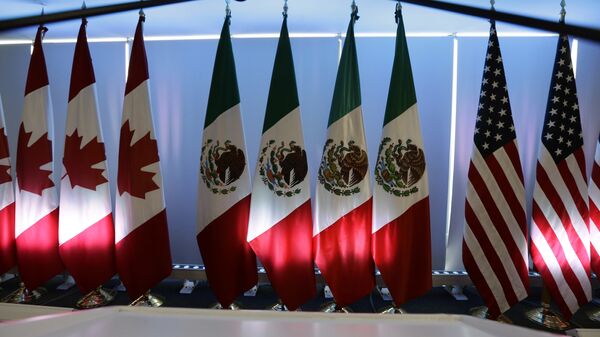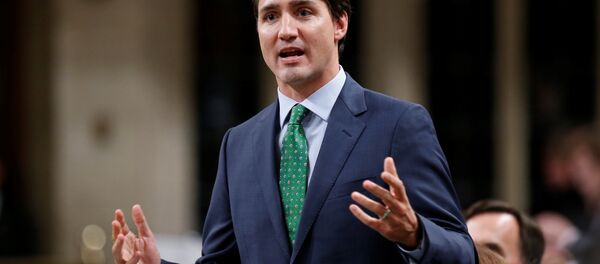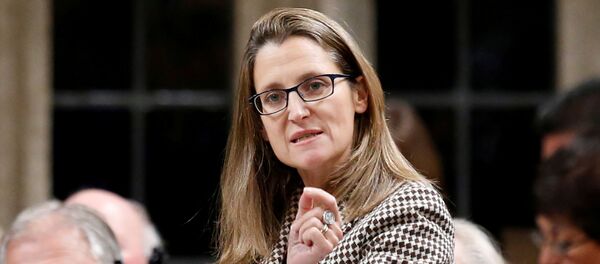Radio Sputnik discussed the ongoing negotiations on the North American Free Trade Agreement with Ian Lee, a professor at Carleton University’s Sprott School of Business, Canada.
Sputnik: What are your thoughts on the prospects for reaching a new NAFTA deal by Friday? There’s a very tight deadline here.
Ian Lee: There’ve been negotiations between three countries – Canada, Mexico and the United States. They have been negotiating for roughly about a year and a half to update and modernize NAFTA which was last passed and revised in 1993, a quarter of a century ago roughly. A lot of things happened since then – digital economy, new drugs, intellectual property and so on. They set out to negotiate but I think what happened, and it’s important to know the context to know how we arrived at this point, is that the Canadian Prime Minister and the Trade Minister made a geopolitical strategic mistake when they went into the negotiations. Instead of defining the interest of Canada as having unimpeded access to the largest economy in the world called the US with 20 trillion GDP they publically repeatedly said “We are not going to give up on those unprotected industries. When we did NAFTA in 1993 we opened up hundreds of industries but we protected about six or seven of them from foreign competition – telecom, dairy products, banking, airlines etc.”
Sputnik: He has said that a no deal is better than a bad deal. NAFTA has not been dissolved; Trump has said that he’s going to back out of it but technically the NAFTA agreement remains valid between Canada, the US and Mexico and even if the US were to leave it would remain valid between Canada and Mexico. Is that interesting?
Ian Lee: I don’t think so. Every large economy in the world wants to do business with the United States simply because it is the largest and deepest economy in the world, there’s enormous productivity and it’s considered the risk-free rate of return. I don’t mean that businesses can’t fail but it’s seen as risk-free meaning that the government won’t expropriate your wealth as they do in many other countries from time to time. It is the big enchilada; it is the country everybody wants to deal with. In Canada’s instance three quarters of the totality of their trade with the entire world is with one country called the US. So, I try (3:56) the US is really not very meaningful in Canada’s instance, it’s simply not very useful.
Sputnik: What about a no-deal? What’s that going to do? To what extent is trade with Mexico important to Canada? Basically speaking, we could see a bilateral deal between the US and Mexico; Mexico is also very interested in having Canada be a part of that deal, they want to have a deal with Canada. Maybe they just return to this later because there’s a new president coming into Mexico which is why the rush is.
Ian Lee: The amount of trade that Canada has with Mexico is trivial. I completely disagree with the Prime Minister when he said that a bad trade deal is worse than no deal at all. I’ve been teaching trade for 30 years; we’ve known for 300 years since Adam Smith, Nobel Prizes have been given proving that when two nations liberalize their trading relationship, that is to say reduce the barriers of trade, both countries are better off. There’s no such thing as a bad trade deal if you are liberalizing the trade and reducing the trade barriers. Even if it is not the deal we wanted which is what, I think, Mr. Trudeau really means – he’s saying “I don’t like this deal” and he’s calling it “bad” – that so-called “bad deal” is much superior to no deal at all because no deal at all means that there’re barriers go up that slow down the exports to the US.
The views and opinions expressed in this article do not necessarily reflect Sputnik's position



